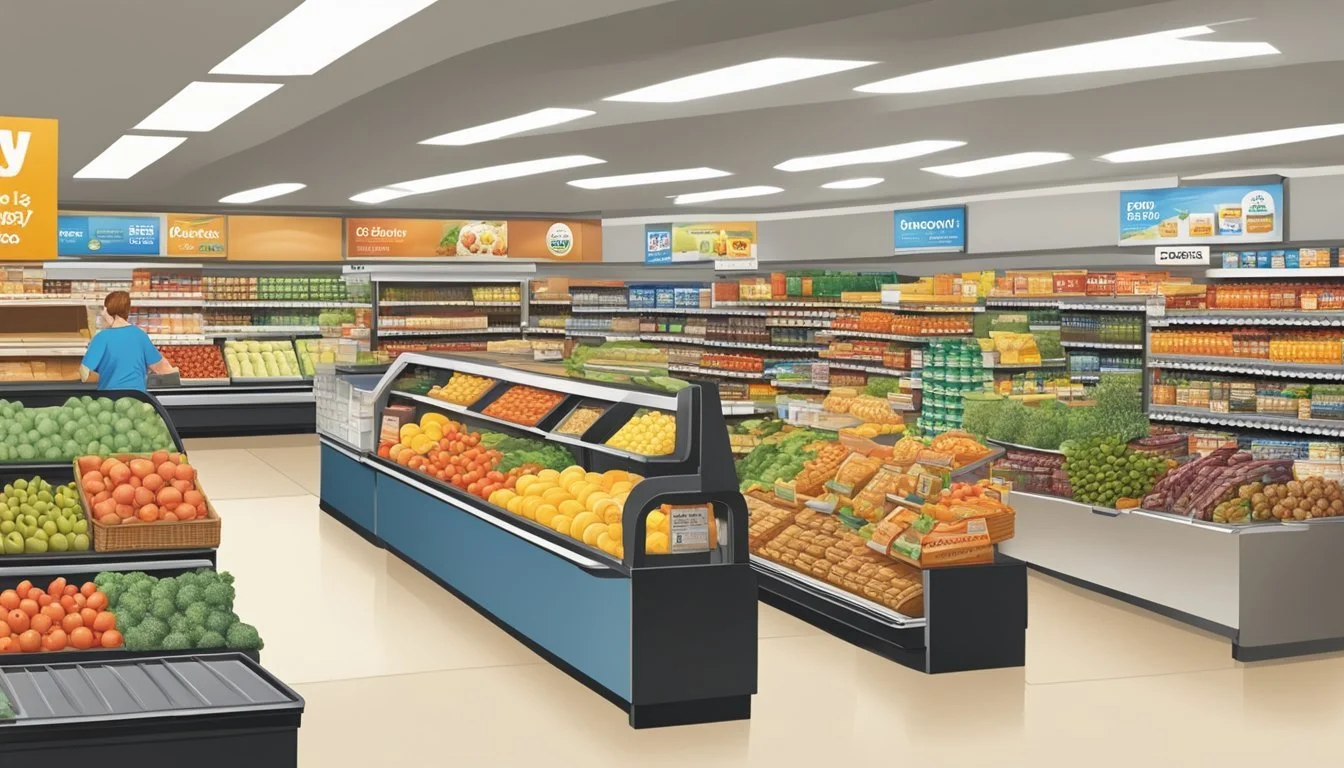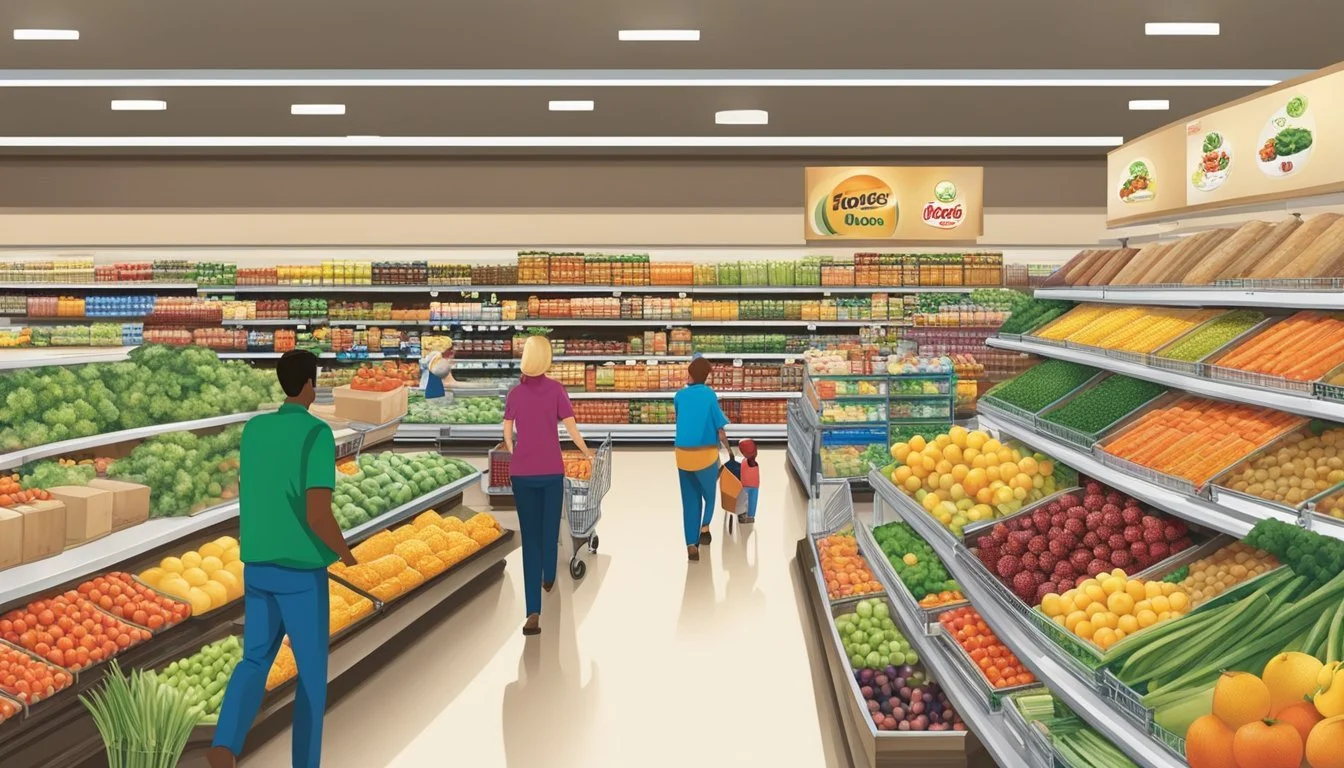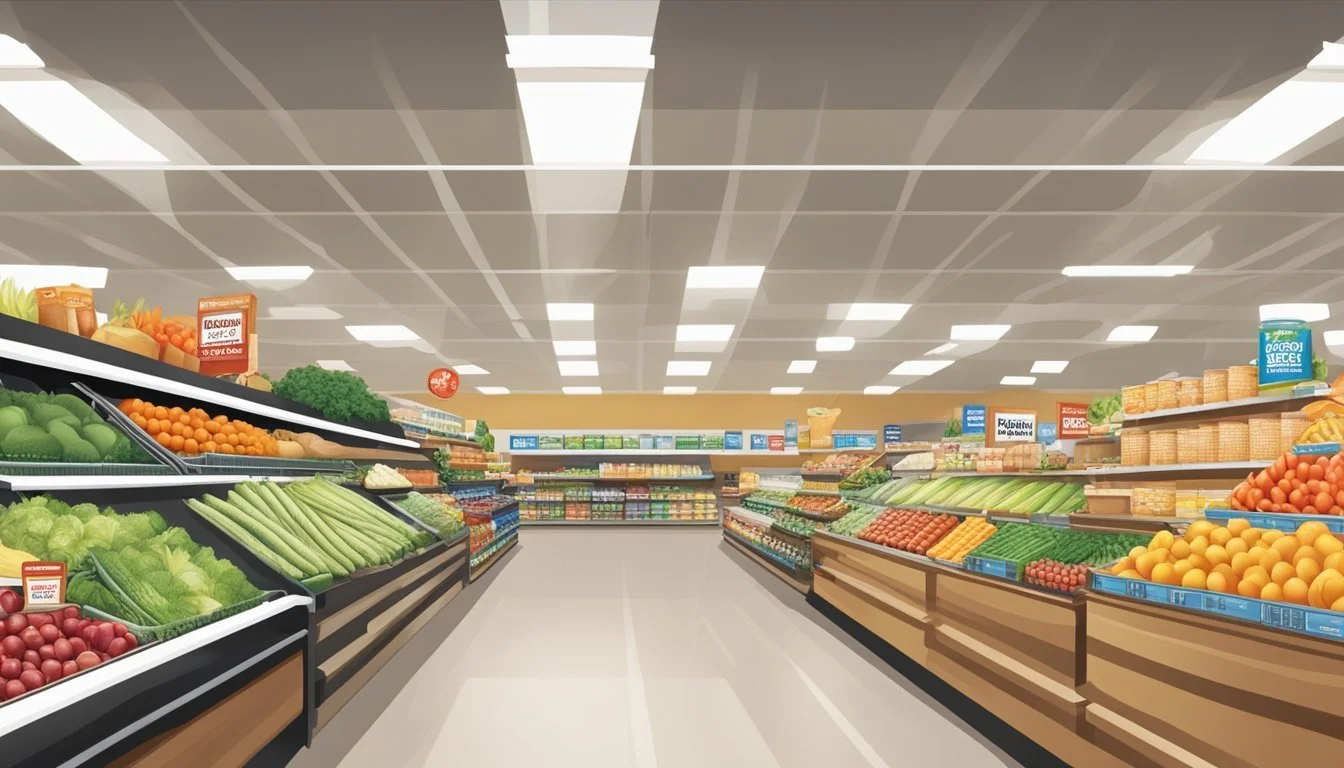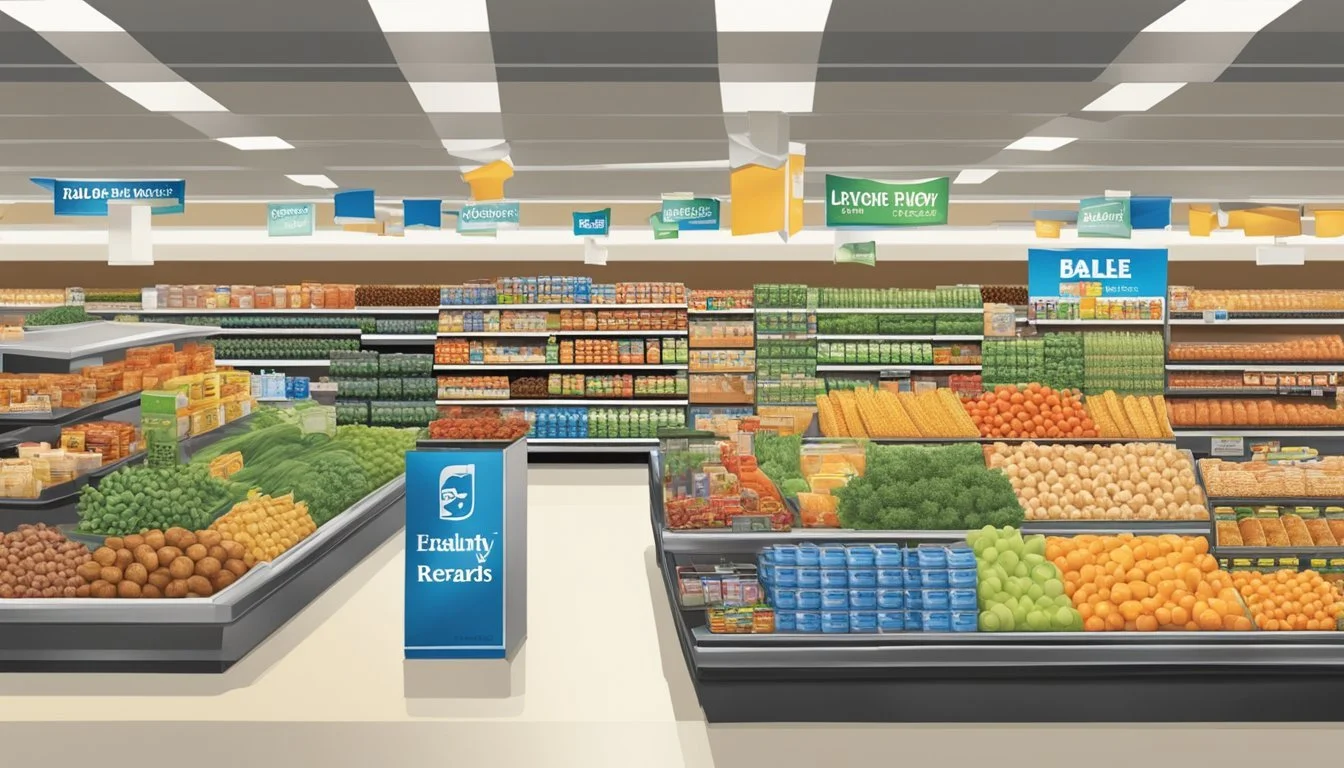Food Lion vs Hy-Vee
A Comprehensive Comparison of Prices, Quality, and Service
Grocery shopping is a fundamental part of daily life, and choosing the right store can significantly impact both your budget and shopping experience. Food Lion and Hy-Vee are two prominent grocery chains serving different regions of the United States. Food Lion primarily operates in the Southeast, while Hy-Vee is a Midwestern staple.
When comparing these two retailers, several factors come into play. Both Food Lion and Hy-Vee offer competitive pricing, with Hy-Vee often providing a wider selection of products and services. Food Lion focuses on delivering everyday low prices, while Hy-Vee emphasizes quality and customer service alongside competitive pricing.
The best choice between Food Lion and Hy-Vee often depends on individual preferences and location. Shoppers in the Southeast may find Food Lion more accessible, while those in the Midwest might prefer Hy-Vee's extensive offerings. Each store has its strengths, from Food Lion's budget-friendly options to Hy-Vee's diverse departments and in-store dining experiences.
Company Backgrounds
Food Lion and Hy-Vee are prominent supermarket chains in the United States, each with a unique history and regional presence. Their origins and growth trajectories have shaped their current market positions and customer bases.
Historical Overview of Food Lion
Food Lion began as Food Town in 1957 in Salisbury, North Carolina. Founded by Wilson Smith, Ralph Ketner, and Brown Ketner, the chain initially focused on the southeastern United States.
In 1974, the Belgium-based Delhaize Group acquired Food Town. This acquisition fueled the company's expansion and led to its rebranding as Food Lion in 1983.
Food Lion expanded rapidly throughout the 1980s and 1990s, becoming a major player in the mid-Atlantic and southeastern grocery markets.
Understanding Hy-Vee's Market Presence
Hy-Vee, founded in 1930 in Beaconsfield, Iowa, has grown into a significant Midwestern supermarket chain. The company's name combines its founders' names: Charles Hyde and David Vredenburg.
Hy-Vee operates over 275 stores across eight Midwestern states: Illinois, Iowa, Kansas, Minnesota, Missouri, Nebraska, South Dakota, and Wisconsin.
A unique aspect of Hy-Vee is its employee-ownership structure, which began in 1960. This model has contributed to the company's strong corporate culture and customer service focus.
Hy-Vee has earned recognition for its quality, variety, and healthy lifestyle initiatives. In recent years, it has ranked highly among national grocery retailers, known for its culinary expertise and convenience offerings.
Store Locations and Accessibility
Food Lion and Hy-Vee have distinct geographic distributions across the United States. Their store locations impact convenience and accessibility for customers in different regions.
Food Lion's Reach in the Southeastern Region
Food Lion operates approximately 1,100 stores across 10 states, primarily in the Southeastern United States. The chain has a strong presence in states like North Carolina, Virginia, and South Carolina.
Food Lion stores are often located in both urban and rural areas, providing accessibility to a wide range of communities. Many locations offer convenient hours, with some stores open 24/7.
The company has invested in expanding its reach through smaller format stores in certain markets. This strategy allows Food Lion to serve areas where full-size supermarkets may not be feasible.
Hy-Vee's Geographic Distribution
Hy-Vee's operations are concentrated in the Midwestern United States. The company has over 280 stores spread across eight states, including Iowa, Illinois, Kansas, and Minnesota.
Hy-Vee has developed multiple store formats to cater to different market needs. These include full-size supermarkets, convenience stores, and dollar format locations.
The diverse store formats enable Hy-Vee to establish a presence in various community types, from large cities to small towns. This approach enhances accessibility for customers across different demographics and geographic areas.
Hy-Vee has also introduced alternative concepts like alcohol outlets, further expanding its reach in specific markets.
Product Range and Quality
Food Lion and Hy-Vee offer diverse product selections to meet varying customer needs. Both stores strive to provide quality items across departments, but there are notable differences in their offerings and approaches.
Comparing Produce Selection
Food Lion maintains a standard produce section with common fruits and vegetables. Hy-Vee typically offers a wider variety, including more organic and exotic options. Hy-Vee's produce departments are often larger, with a focus on freshness and presentation.
Both chains prioritize local sourcing when possible. Hy-Vee frequently highlights regional farms and growers. Food Lion's produce quality is generally good, but Hy-Vee tends to receive higher marks for freshness and selection.
Organic options are more prevalent at Hy-Vee. They often dedicate larger areas to organic produce. Food Lion has increased its organic offerings in recent years but still lags behind Hy-Vee in this category.
Meat and Seafood Offerings
Hy-Vee stands out with its full-service meat and seafood counters. Trained butchers are available to provide custom cuts and advice. Their seafood selection is typically more extensive, often including fresh fish and specialty items.
Food Lion offers pre-packaged meats and a limited seafood selection. While the quality is generally good, the variety is more limited compared to Hy-Vee.
Both stores carry standard cuts of beef, pork, and poultry. Hy-Vee often includes more premium options like prime beef and organic meats. Food Lion focuses on value-oriented selections.
Bakery and Deli
Hy-Vee's bakery and deli departments are usually larger and offer more variety. Their bakeries often produce a wide range of breads, pastries, and custom cakes. Many Hy-Vee stores include in-store dining options or food courts.
Food Lion's bakery and deli sections are more modest. They typically offer standard items like sliced breads, basic cakes, and deli meats. The focus is on convenience rather than specialty items.
Hy-Vee often employs trained bakers and chefs, allowing for more made-from-scratch items. Food Lion relies more on pre-made or par-baked goods to stock their bakery shelves.
Store Brand vs. National Brands
Both chains offer a mix of store brands and national brands. Food Lion's store brand, Food Lion, covers many product categories and is positioned as a value option. Quality is generally comparable to national brands at lower prices.
Hy-Vee's store brands include Hy-Vee and several sub-brands for specific product lines. These are often seen as higher quality alternatives to national brands, with some premium options available.
National brands are well-represented in both stores. Hy-Vee typically carries a broader selection of national brands, including more specialty and gourmet options. Food Lion focuses on popular national brands that appeal to budget-conscious shoppers.
Pricing and Affordability
Price is a crucial factor when choosing a grocery store. Both Food Lion and Hy-Vee offer competitive pricing, but there are some key differences to consider.
Comparative Analysis of Everyday Prices
Food Lion generally offers lower prices on everyday items compared to Hy-Vee. Their store-brand products are particularly affordable, often priced 20% below national brands.
Hy-Vee, while slightly more expensive, provides a wider selection of premium and organic options. This can lead to higher overall costs for shoppers seeking specialty items.
A typical grocery basket at Food Lion may cost 5-10% less than at Hy-Vee, depending on the specific products chosen.
Promotional Deals and Savings Programs
Both chains offer robust loyalty programs and weekly deals to help customers save money.
Food Lion's MVP Card provides:
Digital coupons
Personalized offers
Points for future discounts
Hy-Vee's Fuel Saver + Perks program includes:
Fuel discounts
Digital coupons
Exclusive member pricing
Food Lion tends to have more frequent BOGOs (Buy One, Get One) deals, while Hy-Vee often features bulk discounts on larger quantities.
Analyzing Cost Efficiency for Family Budgets
For families on a tight budget, Food Lion's consistently lower prices make it a more cost-effective option for routine shopping trips.
Hy-Vee can be more budget-friendly for families who:
Take advantage of bulk pricing
Utilize their fuel rewards program extensively
Prefer one-stop shopping (potentially saving on transportation costs)
A family spending $250 weekly on groceries could save approximately $25-$30 per week by choosing Food Lion over Hy-Vee. However, individual shopping habits and preferences play a significant role in determining the most cost-effective option for each household.
Customer Service and Shopping Experience
The customer service and overall shopping experience play crucial roles in determining which grocery store customers prefer. Both Food Lion and Hy-Vee strive to create positive environments for their shoppers, but they differ in their approaches and execution.
Evaluating In-Store Service
Food Lion focuses on efficient, no-frills service. Cashiers are typically quick and courteous, aiming to minimize wait times at checkout. Hy-Vee, in contrast, emphasizes personalized attention. Their employees are often more engaged, offering assistance with product locations and recommendations. Hy-Vee stores frequently have dedicated customer service desks to handle inquiries and returns promptly.
Both chains train staff in basic product knowledge, but Hy-Vee employees generally receive more extensive training. This can result in more informed responses to customer questions about specialty items or dietary concerns.
Cleanliness and Store Atmosphere
Hy-Vee is known for maintaining exceptionally clean stores with wide, well-lit aisles. Their layout often feels more spacious and organized, creating a pleasant shopping atmosphere. Many Hy-Vee locations feature upscale decor and modern fixtures.
Food Lion stores, while clean, may not always match Hy-Vee's polished appearance. Their stores typically have a more utilitarian design focused on functionality rather than aesthetics. Food Lion's atmosphere is geared towards quick, efficient shopping trips.
• Hy-Vee:
Spacious aisles
Modern decor
Well-organized shelves
• Food Lion:
Functional layout
Efficient use of space
Focus on basics
Convenience of Shopping Options
Both chains have embraced technology to enhance shopping convenience. Food Lion offers a user-friendly mobile app for digital coupons and shopping lists. Their stores often feature self-checkout options to reduce wait times.
Hy-Vee takes convenience a step further with expanded services. Many locations offer online ordering with curbside pickup or home delivery. Some Hy-Vee stores include in-store dining options, pharmacies, and even clothing departments, creating a one-stop shopping experience.
Food Lion maintains a strong focus on grocery essentials, which can make quick trips more straightforward for some shoppers. Hy-Vee's broader range of services may appeal to customers looking for a more comprehensive shopping destination.
Loyalty and Rewards Programs
Food Lion and Hy-Vee offer distinct loyalty programs to reward customers and encourage repeat shopping. These programs provide various benefits, discounts, and ways to earn and redeem points.
Membership Benefits and Discounts
Food Lion's MVP program gives shoppers access to weekly specials and exclusive discounts. Members receive personalized coupons and can save on select items throughout the store. The program is free to join and requires only basic information to sign up.
Hy-Vee's Fuel Saver + Perks program offers a wider range of benefits. Members earn points on purchases, which can be redeemed for discounts on fuel or groceries. The program also includes personalized deals and digital coupons.
Hy-Vee recently introduced a paid membership option called Hy-Vee Plus. For $99 annually or $12.95 monthly, members receive additional perks like free delivery, exclusive discounts, and concierge services.
Earning and Redeeming Reward Points
Food Lion's MVP program focuses on instant savings rather than point accumulation. Shoppers enjoy immediate discounts on marked items when using their MVP card at checkout.
Hy-Vee's program allows customers to earn points on eligible purchases. These points can be redeemed for fuel discounts or grocery savings. Members typically earn 1 point per dollar spent, with bonus point offers on select items.
Both stores offer digital tools to track savings and manage rewards. Food Lion's mobile app lets users view their savings history and clip digital coupons. Hy-Vee's app provides similar features, plus the ability to monitor fuel points and redeem rewards.
Social Responsibility and Sustainability
Food Lion and Hy-Vee demonstrate commitments to sustainability and community engagement. Both grocers have implemented eco-friendly practices and established programs to support local communities.
Commitment to Sustainable Practices
Food Lion has set ambitious sustainability goals. The company aims to reduce waste, promote sustainable sourcing, and take bold climate action. They've made it easier for customers to identify environmentally responsible products.
Hy-Vee focuses on ocean resource protection as part of its sustainability mission. The retailer became the first in the Midwest to source 100% of its fresh and frozen seafood from environmentally responsible suppliers. This commitment extends to their overall business practices.
Both chains offer organic produce options to cater to environmentally conscious consumers. However, Hy-Vee has faced criticism for its use of single-use plastics, dropping in rankings related to plastic reduction efforts.
Community Involvement and Impact
Hy-Vee's employee-owned structure fosters a strong sense of community involvement. This ownership model often translates to enhanced customer service and local engagement.
Food Lion has established programs to support its neighbors. The company focuses on fighting hunger in local communities through various initiatives.
Both grocers prioritize local sourcing. Hy-Vee, for instance, offers a diverse selection of store brand items, many of which are sourced from local producers. This practice supports regional economies and reduces transportation-related emissions.
Food Lion and Hy-Vee actively participate in community events and sponsor local organizations. These efforts strengthen their ties to the areas they serve and demonstrate their commitment to social responsibility.
Market Trends and Consumer Behavior
Grocery shopping patterns and consumer expectations are evolving rapidly, prompting stores like Food Lion and Hy-Vee to adapt their strategies. These changes impact how customers choose where to shop and what they prioritize in their grocery experiences.
Trends in Grocery Shopping Patterns
Consumer Reports surveys indicate a shift towards convenience and value. Shoppers increasingly prefer stores offering diverse options, including ready-made meals and specialty items. Online grocery shopping has gained traction, with many customers opting for delivery or curbside pickup services.
Food Lion and Hy-Vee have responded by expanding their e-commerce capabilities. Both chains now offer mobile apps and websites for online ordering. Hy-Vee has introduced "Aisles Online" while Food Lion provides "To-Go" services.
Customers also seek healthier food choices. This trend has led to expanded organic and natural product sections in both chains. Local sourcing has become more important, with consumers favoring stores that support regional producers.
Adaptations to Changing Consumer Expectations
Food Lion and Hy-Vee have implemented various strategies to meet evolving customer needs. Both chains have revamped store layouts to improve shopping experiences. Hy-Vee has introduced in-store restaurants and dining areas, catering to customers seeking convenient meal options.
Digital integration has become crucial. Both stores have enhanced their loyalty programs with personalized offers and digital coupons. Self-checkout options have been expanded to reduce wait times and provide more autonomy for shoppers.
Sustainability initiatives have gained prominence. Food Lion and Hy-Vee have implemented recycling programs and reduced food waste. These efforts align with growing consumer concerns about environmental impact.
Customer service remains a key differentiator. Both chains have invested in employee training to improve shopper interactions and satisfaction. Hy-Vee's focus on customer service has contributed to its high rankings in consumer satisfaction surveys.
Final Verdict
Both Food Lion and Hy-Vee offer unique strengths to shoppers. Food Lion excels in affordability, with competitive prices on store brand items and produce. Their smaller footprint allows for quicker shopping trips.
Hy-Vee stands out for its extensive prepared foods section and wider variety of products. The chain is known for superior customer service and a more upscale shopping experience.
Quality-wise, Hy-Vee generally edges out Food Lion, especially in fresh departments and specialty items. However, Food Lion's produce and store brands often match national brands in quality at lower prices.
Convenience varies by location, but Hy-Vee typically offers more in-store amenities like pharmacies and dining options. Food Lion focuses on efficient, no-frills shopping experiences.
Customer service ratings tend to favor Hy-Vee, with its reputation for friendly and helpful staff. Food Lion provides adequate service but may not go above and beyond as consistently.
Ultimately, the choice between Food Lion and Hy-Vee depends on individual priorities. Budget-conscious shoppers may prefer Food Lion, while those seeking a wider selection and enhanced shopping experience might choose Hy-Vee.








